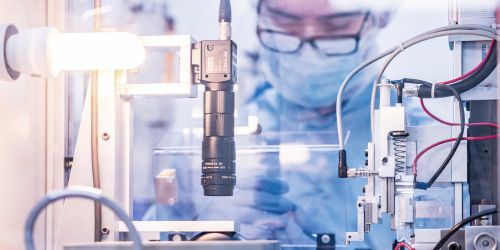Bringing a medical device to market is a highly intricate and multifaceted endeavour that requires more than just innovation and engineering excellence. It involves a deep understanding of regulatory landscapes, meticulous planning, rigorous testing, and effective project management. The timeline from conception to commercialisation can span several years, with each stage presenting its own set of challenges.
A critical aspect of this journey is the time to market, which can significantly influence a device’s competitive edge, revenue generation, and overall market success. An accelerated time to market allows companies to seize market opportunities, meet patient needs more swiftly, and maximise return on investment. Conversely, delays can erode competitive advantages, inflate costs, and potentially impact patient outcomes.
Despite the best intentions, many companies encounter obstacles that delay their progress. These setbacks are often the result of common yet avoidable mistakes. Understanding and addressing these pitfalls early can streamline the development process, enhance efficiency, and reduce time to market.
In this blog post, we will delve deeper into three of the most critical mistakes that can impede the timely launch of a medical device and provide actionable insights on how to mitigate these risks.
Top 3 mistakes that can affect your time to market for a medical device
Mistake 1: Inadequate Regulatory Planning
One of the most significant factors affecting time to market is the regulatory approval process. Each market has its own set of regulatory requirements that must be met before a medical device can be sold.
A common mistake is underestimating the complexity and duration of this process. Companies often fail to engage with regulatory bodies early enough, leading to delays in approval.
How to Avoid It:
– Start regulatory planning early in the product development process.
– Engage with regulatory consultants who have experience with the specific markets you are targeting.
– Develop a comprehensive regulatory strategy that includes timelines and milestones for submission and approval.
Mistake 2: Insufficient Testing and Validation
Thorough testing and validation are crucial for ensuring that a medical device is safe and effective. However, companies sometimes rush this process to meet tight deadlines, leading to inadequate testing.
This can result in costly recalls, redesigns, and additional testing, all of which can significantly delay market entry.
How to Avoid It:
– Allocate sufficient time and resources for comprehensive testing and validation.
– Implement a robust quality management system (QMS) that emphasises continuous improvement and compliance with regulatory standards.
– Conduct multiple rounds of testing, including usability testing with end-users, to identify and address potential issues early.
Mistake 3: Poor Project Management
Effective project management is essential for keeping the development of a medical device on track. Poor project management can lead to missed deadlines, budget overruns, and inefficient use of resources. This includes inadequate coordination between different teams, lack of clear milestones, and insufficient risk management.
How to Avoid It:
– Employ experienced project managers who understand the medical device development lifecycle.
– Use project management tools and software to track progress, manage resources, and communicate effectively with all stakeholders.
– Establish clear milestones, deadlines, and contingency plans to manage risks and unexpected challenges.
Reduce your time to market
Navigating the path to market for a medical device is fraught with challenges, but by avoiding these common mistakes, companies can significantly reduce their time to market. Adequate regulatory planning, thorough testing and validation, and effective project management are key components of a successful strategy. By addressing these areas proactively, companies can ensure a smoother, more efficient development process.
Bringing your innovative medical device to the market efficiently and successfully
Are you ready to bring your medical device to market without unnecessary delays? Contact us today to learn how Europlaz can help you navigate regulatory requirements, enhance your testing and validation processes, and streamline your project management. Let’s work together to bring your innovative medical device to the market efficiently and successfully.





